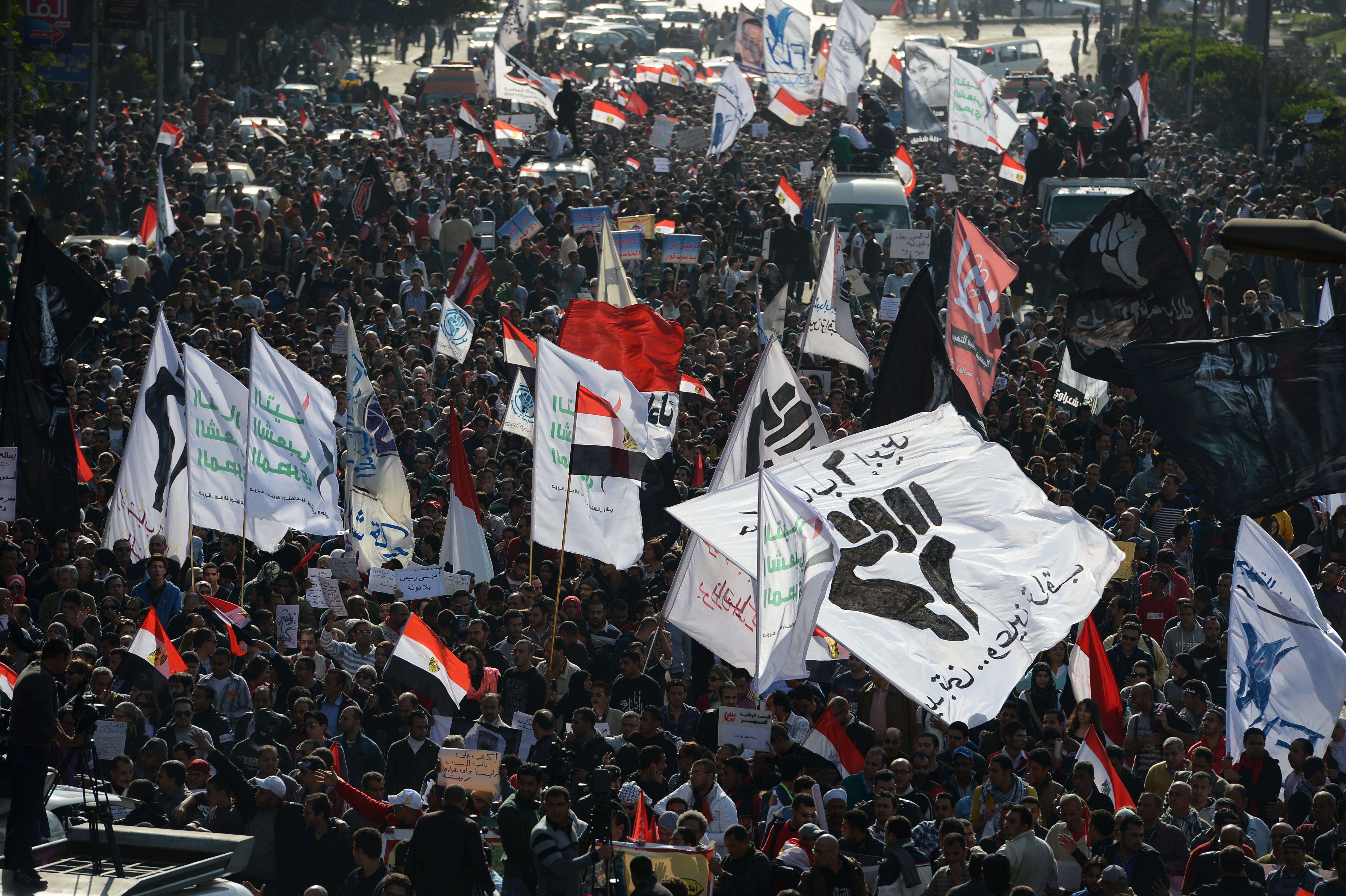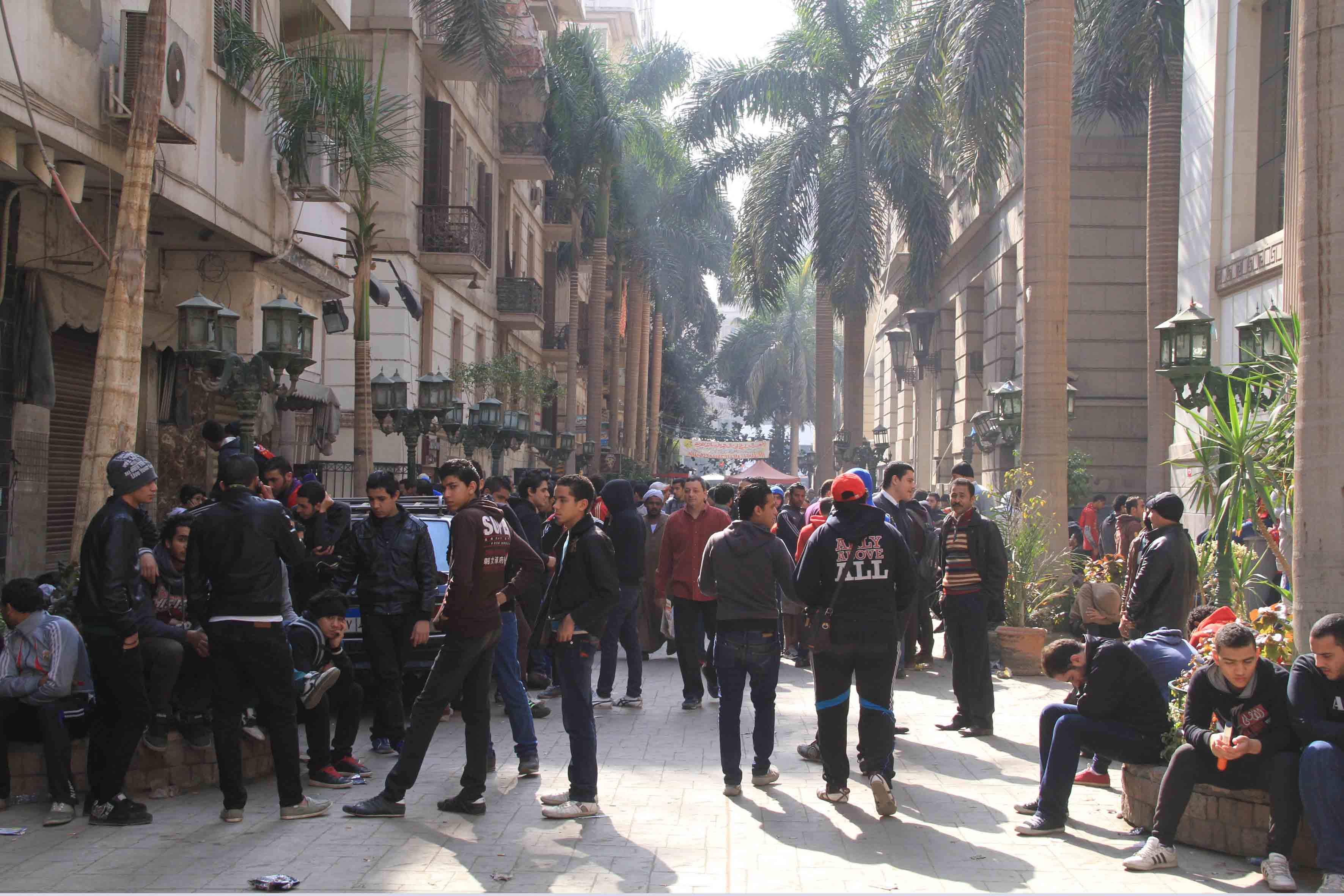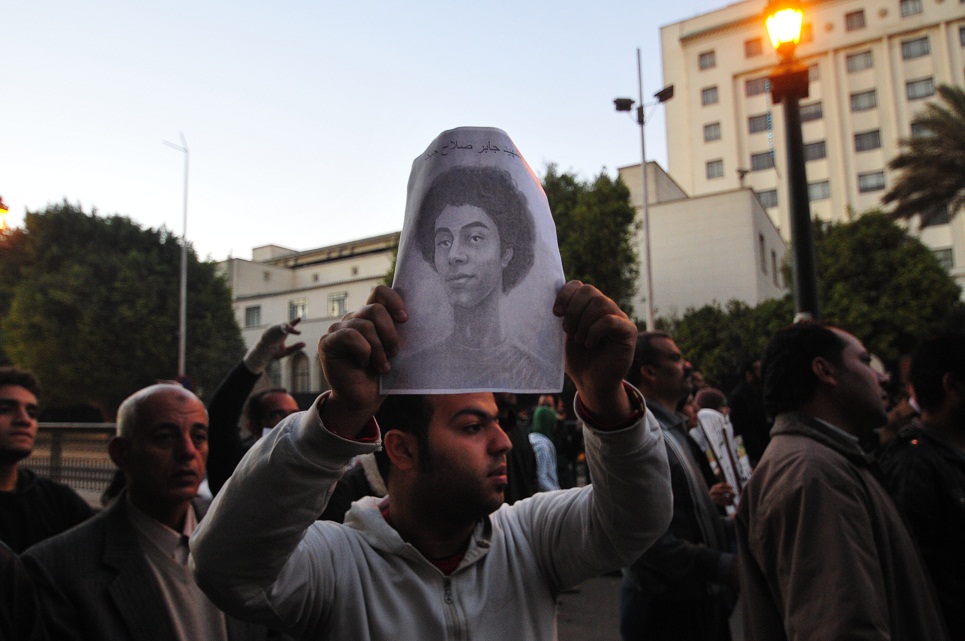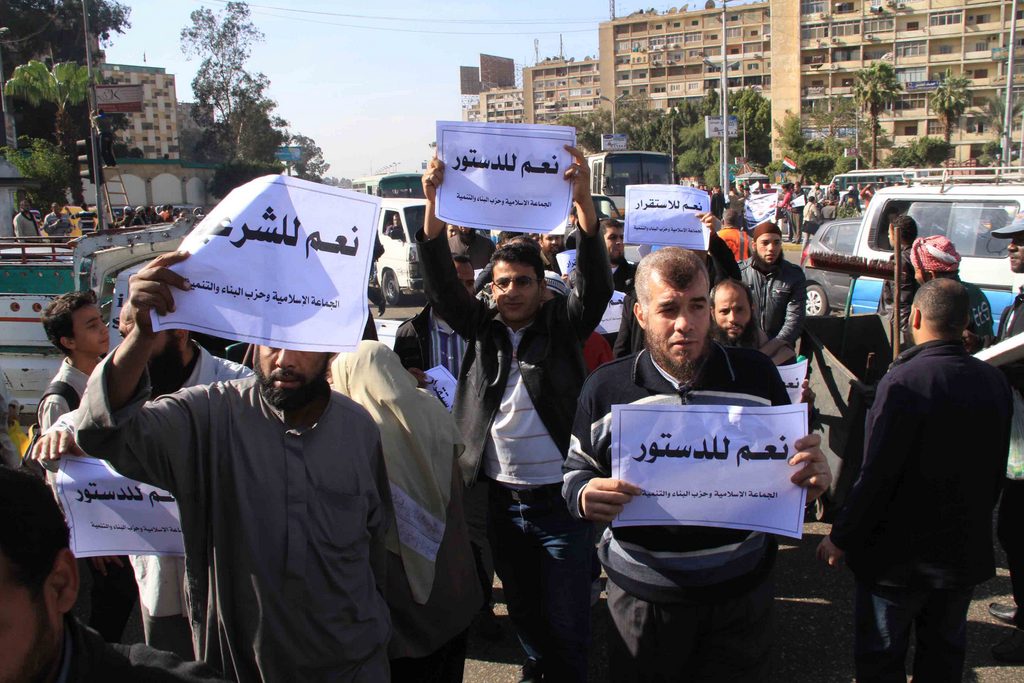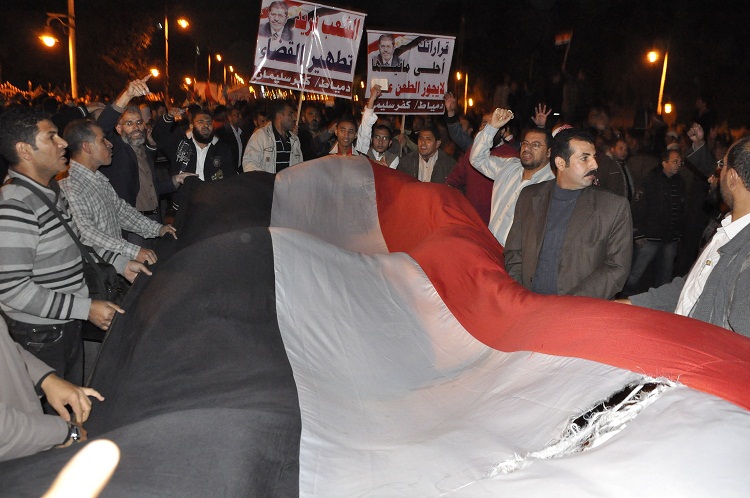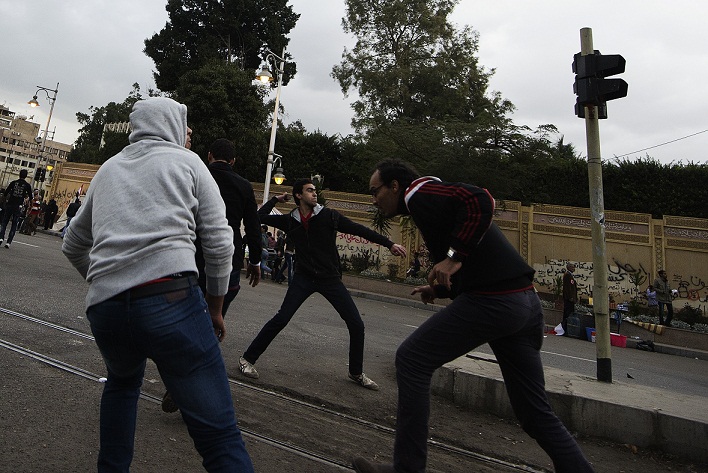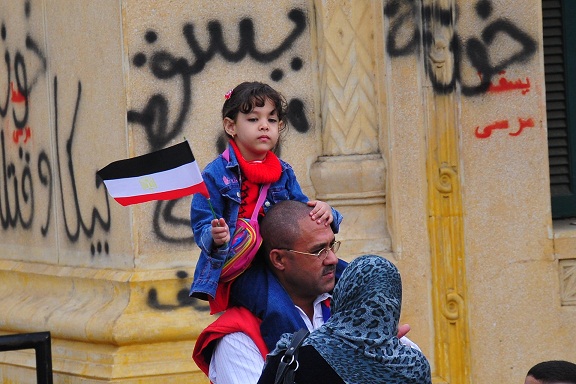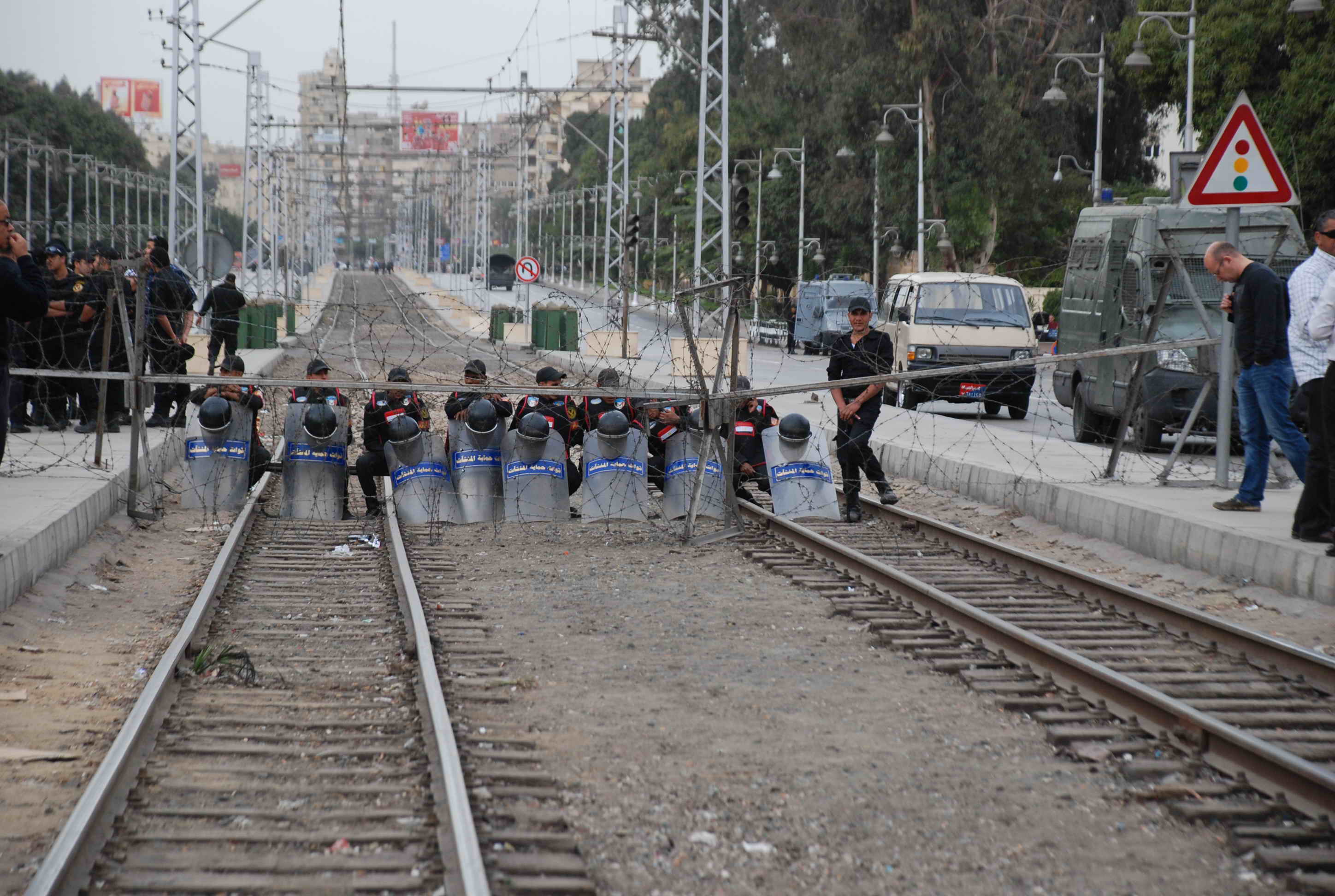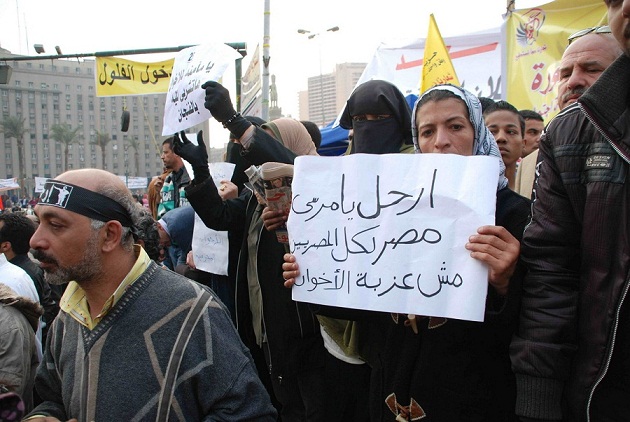Political groups plan Monday march to Shura Council
Groups call for Muslim Brotherhood to disband and will hold a march…
In Pictures: Ultras Ahlawy, first ‘day of rage’
Ultras Ahlawy have been holding marches this week and distributing information nationwide…
In Pictures: The birthday that never happened
Today, 29 December, would have been Gaber Salah Gaber's 17th birthday.
In Pictures: Islamist parties gather at Rabaa mosque
Groups aim to demonstrate support for President Mohamed Morsy and press for…
Review: Millioneya marches and Morsy’s (old) declaration
Before President Mohamed Morsy had issued a new constitutional declaration to repeal…
In Pictures: President Mohamed Morsy leaves the palace ahead of clashes
President Mohamed Morsy left the palace ahead of clashes between his supporters…
Egypt crisis escalates
Pro and anti-government demonstrators face off in Heliopolis
Morsy supporters head to presidential palace
FJP, MB and other groups hold rally to support Morsy, ignore opposition…
Participants, parties and protests
A breakdown of the political groups involved in protests and marches on…
“Final warning” marches to presidential palace
Political groups to protest against proposed constitution Tuesday
